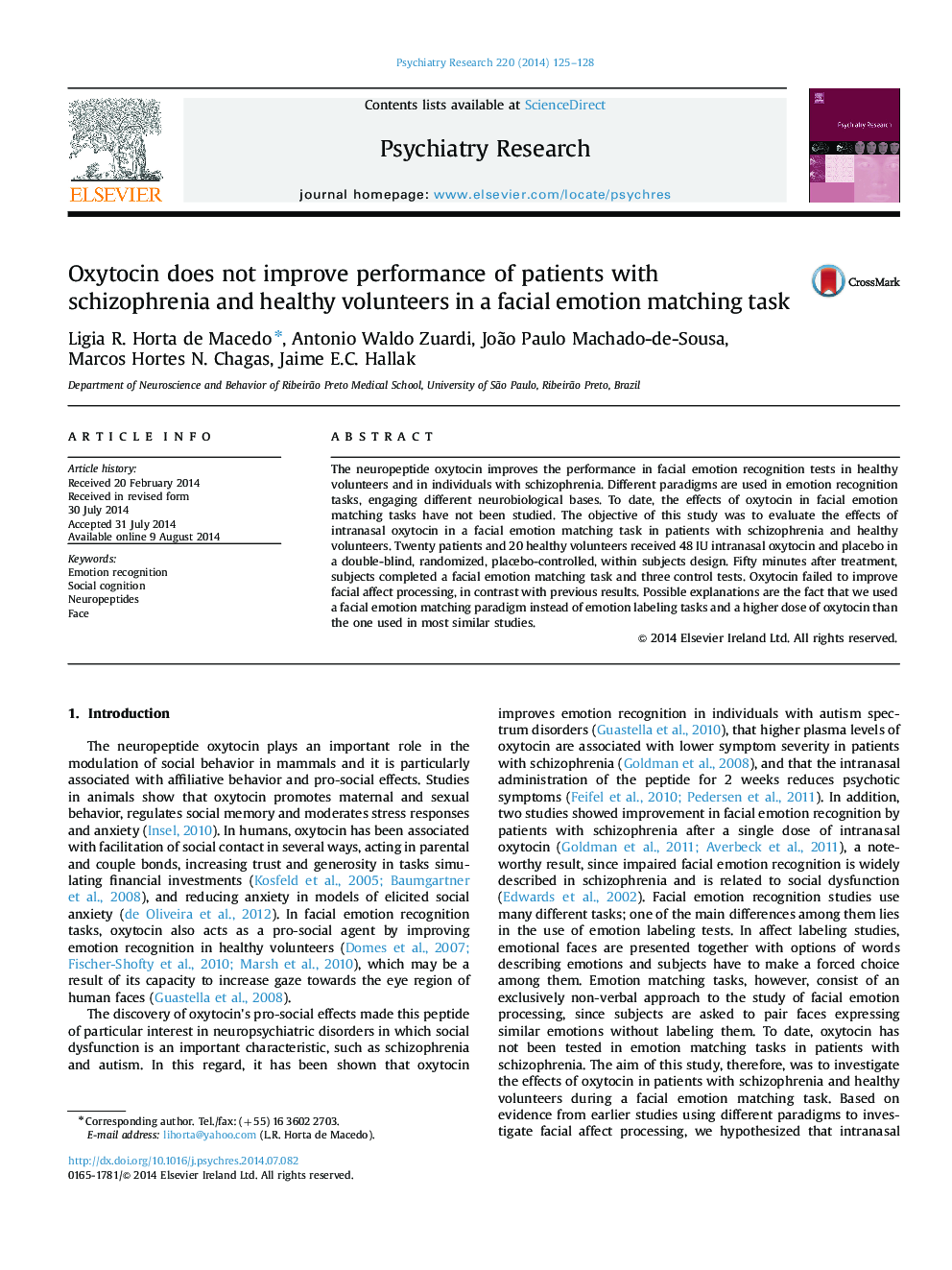| Article ID | Journal | Published Year | Pages | File Type |
|---|---|---|---|---|
| 6814685 | Psychiatry Research | 2014 | 4 Pages |
Abstract
The neuropeptide oxytocin improves the performance in facial emotion recognition tests in healthy volunteers and in individuals with schizophrenia. Different paradigms are used in emotion recognition tasks, engaging different neurobiological bases. To date, the effects of oxytocin in facial emotion matching tasks have not been studied. The objective of this study was to evaluate the effects of intranasal oxytocin in a facial emotion matching task in patients with schizophrenia and healthy volunteers. Twenty patients and 20 healthy volunteers received 48 IU intranasal oxytocin and placebo in a double-blind, randomized, placebo-controlled, within subjects design. Fifty minutes after treatment, subjects completed a facial emotion matching task and three control tests. Oxytocin failed to improve facial affect processing, in contrast with previous results. Possible explanations are the fact that we used a facial emotion matching paradigm instead of emotion labeling tasks and a higher dose of oxytocin than the one used in most similar studies.
Related Topics
Life Sciences
Neuroscience
Biological Psychiatry
Authors
Ligia R. Horta de Macedo, Antonio Waldo Zuardi, João Paulo Machado-de-Sousa, Marcos Hortes N. Chagas, Jaime E.C. Hallak,
